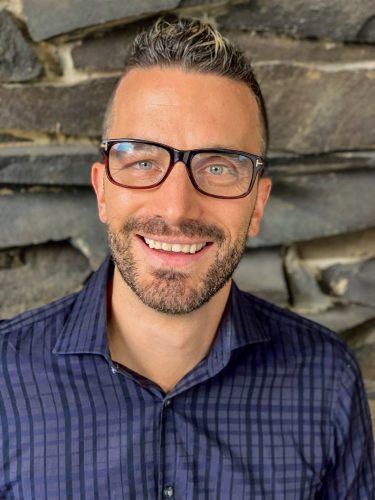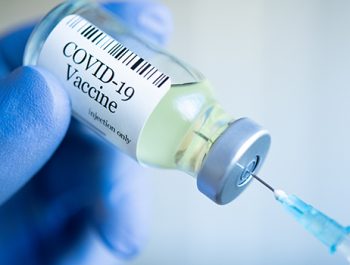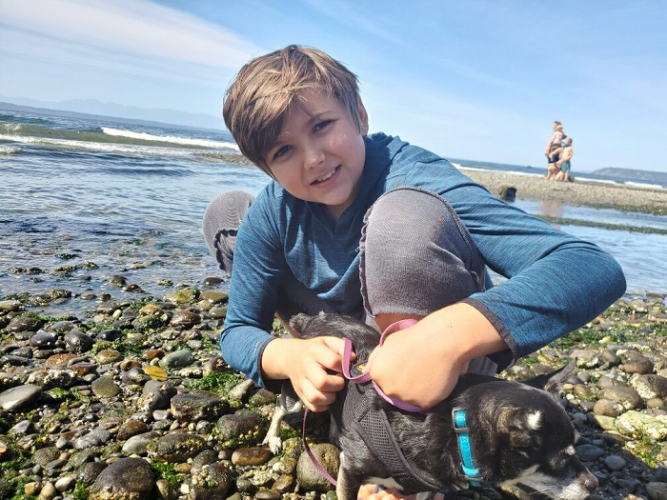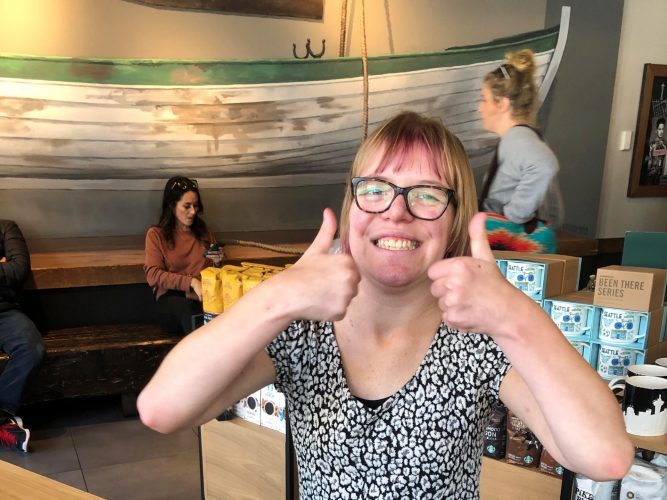Katie and Nic Harmston were distraught as they drove to Kaiser for an ultrasound in July 2021. Katie was six and a half weeks pregnant but was experiencing symptoms of a miscarriage. They both feared the worst. The Harmstons held their breath as the ultrasound began. After a moment, the sonographer smiled and said, […]
April marks National Donate Life Month, a time devoted to spreading awareness about the tremendous need for increasing the number of organ, eye and tissue donors. According to the United Network for Organ Sharing (UNOS), more than 100,000 people in the U.S. need a lifesaving organ. One organ and tissue donor can save or enhance […]
When Michael Willen, art therapist, was growing up in Boulder, Colorado during the 1990s, he heard lots of talk about accepting those who were different from you. Reality, however, often didn’t align with the talk. “You couldn’t be openly gay or talk about something like being transgender,” he recalls. “I wanted a community to connect […]
When Michael Willen, art therapist, was growing up in Boulder, Colorado during the 1990s, he heard lots of talk about accepting those who were different from you. Reality, however, often didn’t align with the talk. “You couldn’t be openly gay or talk about something like being transgender,” he recalls. “I wanted a community to connect […]
Do you know if any of your co-workers are military veterans? Veterans work in just about every type of role at Seattle Children’s. You may work closely with a veteran and not even know it. Veterans face special challenges in the workplace. Seattle Children’s Veterans Inclusion was formed in late 2019 to provide resources for […]
Building Cure and Seattle Children’s Therapeutics are devoted to developing innovative therapies for childhood disease. Meet the first patient to receive a cell therapy treatment produced at Building Cure. When Building Cure opened in fall 2019, Meagan Hollingshead and Josh Chittim had more pressing concerns. Their normally energetic 6-month-old daughter Harper was sick, and multiple […]
In December 2020, the U.S. Food and Drug Administration (FDA) issued Emergency Use Authorizations (EUAs) for COVID-19 vaccines developed by Pfizer-BioNTech and Moderna. This was hailed as a turning point in the COVID-19 pandemic. Still, many people are hesitant about these new vaccines for a variety of reasons, and the proliferation of misinformation can make […]
Xander was just 9 years old when his life took a nightmarish turn. It started with debilitating headaches, which got so bad that he needed inpatient treatment. The treatment helped, but as the headaches diminished, Xander’s parents noticed a difference in their son. “He became depressed,” said Stephanie Simpson, Xander’s mother. “He would curl into […]
Grace Carney was 16 years old when she first began falling. Before long, she was falling every day. It got so bad that she had to rely on other people — family members at home and aides at school — to help her walk. For Grace, this was the latest in a lifetime of medical […]







